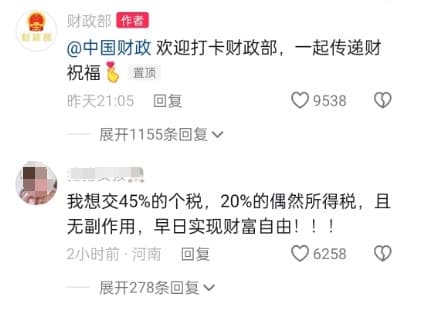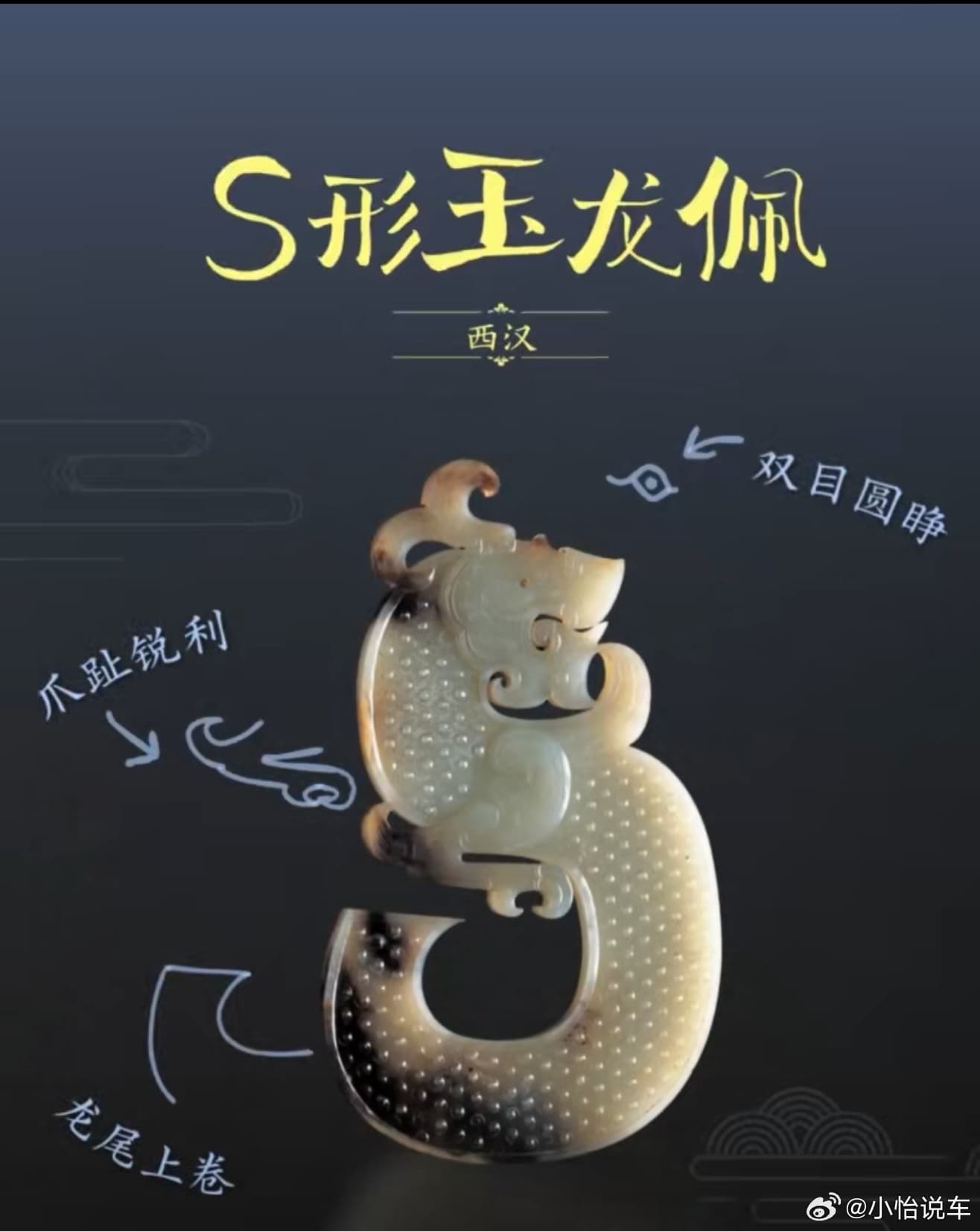Chinese Netizens Jokingly Wish to Pay More Taxes During Lunar New Year Celebrations
On February 14th, a day known as "Breaking the Fifth" in traditional Chinese culture, which involves cleaning the house, eating dumplings, and welcoming the God of Wealth, a peculiar phenomenon took place at the official Weibo account of China's Ministry of Finance.

14 February 2024
Netizens, in a bid to "welcome fortune", flooded the comments section of the Ministry's Weibo post, sharing their wishes for the year ahead. However, the most striking aspect of these wishes was not their sheer number but their content: thousands of users expressed their desire to pay more taxes.
To understand this unusual phenomenon, we must understand the context behind it. February 14th was the day when hundreds of millions of Chinese citizens were celebrating the Lantern Festival, marking the end of the Lunar New Year celebrations. This festive mood seemed to spill over into their online interactions as well, with social media platforms witnessing a flurry of activity around the Lunar New Year theme.
Amidst this vibrant digital celebration, the Ministry of Finance's Weibo post, which invited users to share their wishes for the year, caught the imagination of Chinese netizens. However, the twist here was that users didn't just share their wishes, they shared their willingness to contribute more towards the nation's coffers.
Heartwarming, humorous, and often tongue-in cheek, the tax-related wishes ranged from paying "45% of personal income tax" to "20% of unexpected income tax", and even to having more holidays! Many users humorously added the wish for "no side effects" and "early financial freedom".
Some users took a more direct approach, asking the government to "accept their 45% personal income tax" while others indulged in a bit of playful banter, suggesting the Ministry of Finance should become more in tune with the times.
A user wrote, "I wish to pay 45% of personal income tax and 20% of unexpected income tax. No side effects, may I soon achieve financial freedom, leisure time, and personal freedom!" Another user humorously added, "I wish to pay 45% of personal income tax and become a taxpayer in a AAA-rated country!"
This outpouring of tax-related wishes seemed to resonate with the spirit of the holiday. Breaking the Fifth, while traditionally associated with sweeping away bad luck, also carries the connotation of breaking out of traditional constraints and embracing new possibilities.
The Ministry of Finance, often seen as a rather bureaucratic department, seemed to seize the opportunity to engage with the public in a lighter vein. They responded to some of the humorous wishes, spreading cheer and fostering a sense of camaraderie with the netizens.
However, while the comments section provided a lighthearted and entertaining look into the public's perception of taxes and the Ministry of Finance, it also underscored a deeper issue. The sheer number of users expressing their willingness to pay more taxes pointed towards a larger discussion about taxation policies in China.
While China has witnessed rapid economic growth over the last few decades, it has also been plagued by rising income inequality and persistent social issues. The government has introduced multiple schemes to alleviate poverty and boost the economy, and taxation policies are a significant part of this strategy.
However, the public's perception of taxation policies and their effectiveness remains a topic of debate. While some users seemed content with the current taxation structure, others expressed a desire for more progressive taxation policies that could help reduce the income gap and support social welfare programs.
As the comments section of the Ministry of Finance's Weibo post became an unexpected forum for discussing taxation policies, it provided a unique insight into the public's sentiment towards taxes and the government's role in managing the country's finances.
In conclusion, while the Ministry of Finance's Weibo post and the resulting tax-related wishes provided a moment of levity during the festive season, it also served as a reminder of the ongoing conversation about taxes and their role in shaping China's social and economic landscape. The comments section, while lighthearted, revealed a complex web of hopes, expectations, and concerns about the country's future - a future that will be shaped by how the government manages and distributes its resources.
As the Lunar New Year celebrations draw to a close and life returns to normal, the memories of this unique social media interaction will linger, serving as a reminder of the power of humor and the humanizing effect it can have on often impersonal bureaucratic institutions.




